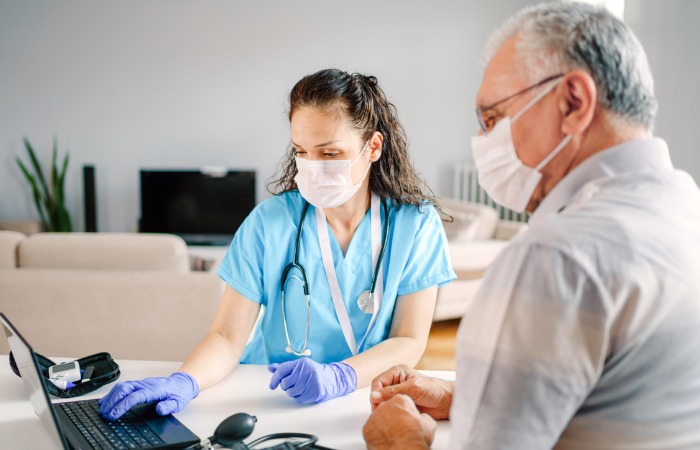
UAB Diabetes and Nutrition Education Services again achieved recognition for its diabetes education program. The program meets standards set by the American Diabetes Association (ADA) for the Diabetes Self-Management Education and Support (DSMES) program.
For people with diabetes, managing the disease can be difficult. Diet is the most important factor in any diabetes treatment plan, but ongoing medical care and lifestyle changes also are needed in most cases. What’s needed is a total management plan, and the DSMES program uses proven methods to provide that.
About DSMES
The DSMES program is a comprehensive educational resource, offering essential instruction about diet, nutrition, medication, and monitoring glucose levels, as well as guidance on lifestyle changes that can affect how patients manage their condition. Participants also learn how to cope with changes in living arrangements, new doctors or insurance plans, depression, financial problems, and being diagnosed with other medical conditions.
Registered dietitians and certified diabetes educators (CDEs) conduct the classes, which are covered by most insurance plans and ideal for patients referred by their primary care doctor or endocrinologist. Data show that people with diabetes who attend an education program such as DSMES have better glucose and A1c numbers. Also, they are less likely to have complications from diabetes such as amputations, blindness, and kidney failure.
More Patients Needed
Held at The Kirklin Clinic of UAB Hospital, the DSMES classes offer convenience and ease of access. Most importantly, the program at UAB Medicine meets requirements established by the ADA. UAB Medicine Diabetes and Nutrition Education Services Supervisor Barbara Roberts, MS, RDN, LDN, CDE, says this 2021 marks the 10th year that the program has met the national standards.
“Our DSMES was just approved for our four-year cycle, as it has been for years,” Roberts says. “There are 10 criteria we must meet. We achieve this recognition from data we submit that track our outcomes and show evidence that we are meeting national standards set by the ADA.”
Roberts urges providers to inform their patients with diabetes about this resource.
“With the current high rate of diabetes in our state, we should be seeing many more patients each month,” Roberts says. “Our no-show rate is a problem as well. It may be that they don’t learn about DSMES from providers or aren’t strongly encouraged to attend, even if they are made aware of the classes. Research shows that when physicians refer patients to a diabetes education clinic, they are more likely to attend. We want to get the message out to providers that DSMES is a valuable benefit.”
Click here to learn more about the Diabetes Self-Management Education and Support program, or call 205-801-8171.
